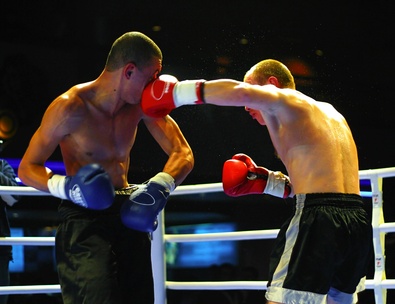
Should Boxing be Banned in Light of Brain Injury Concerns?

Recently there has been a lot of focus in the media on dangers associated with playing professional sports- particularly regarding the risks and dangers of traumatic brain injury. There are risks associated with participating in high contact sports like football and hockey. Recently, developments in the area of TBI research have caused professional boxing to come under some scrutiny as well. The frequent blows to the head incurred by professional boxers can cause tearing to the blood cells in the brain which, in turn, damage the nerve cells surrounding the blood vessels. These injuries can cause “tangles” to the nerve cells in the brain that- new research suggests- can develop and spread resulting in severe and lasting brain damage including TBI and possibly Alzheimer’s disease.
In order to prevent boxers from sustaining serious and lasting brain injuries from their involvement in the sport, one leading neuroscientist suggests a simple solution: ban boxing. John Hardy, chair of Molecular Biology of neurological Disease at University College London’s Institute of Neurology, suggests allowing women’s boxing in the 2012 Olympics was “a terrible thing” because the sport of boxing rewards its fighters for inflicting the maximum amount of damage possible on their opponent’s brain. Dr. Hardy is worried that boxing will now become a mainstream sport for women as well.
While it is no secret that being struck repeatedly in the head can lead to an injury to the brain- even over a short period of time- the idea of banning an entire sport from the Olympics or the professional sphere in general seems, frankly, ridiculous. Banning boxing because some professional boxers have sustained serious brain injuries is akin to banning cars because drivers can be seriously injured or killed in motor vehicle accidents. Instead, legislatures have taken more appropriate steps such as implementing several rules and guidelines in an attempt to limit the number of injured drivers as much as possible: wear a seatbelt, drive the speed limit, and obey traffic signals. Similarly, the recent media attention to the death of former professional football player Junior Seau has led the NFL to consider taking additional safety precautions to prevent TBI to its players.
It seems then that boxing could, and probably should, follow in the footsteps of the department of transportation and the National Football League. Implementing new safety regulations in professional boxing would allow for the enjoyment of the sport by participants and spectators alike, while reducing the risk of injury to the boxers themselves.
I would like to see a protocol implemented by the various sanctioning organizations that would require diagnostic testing on fighters at specific intervals. Further, boxers should be forced to undergo clinical examination every year in order to be cleared to fight.
Of course the best way to prevent injuries to the brain is to avoid activities with high risks of injuries. But that is not to say that people do not have a right to participate in those activities should they choose to do so. The answer lies not in eliminating every possible cause of brain injury; such would be impossible. Instead, the focus should be on furthering the research and development of treating the injury. Understanding this logic, the NFL recently teamed up with General Electric Co to bankroll a $60 million research project into the area of traumatic brain injuries. Perhaps on the issue of traumatic brain injury, the World Boxing Association should steal a page from the NFL’s playbook.
Matthew A. Dolman, Esq., is a Florida brain injury lawyer and routinely blogs about the subject of traumatic brain injury at www.tampabaybraininjuryblog.com.
Google+




